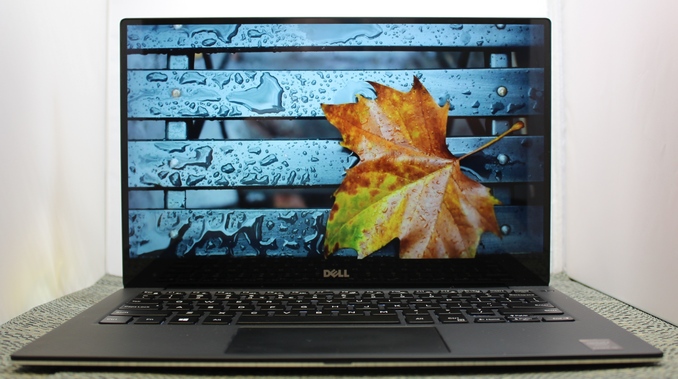Dell Issues Patch For Content Adaptive Brightness Control On The XPS 13
by Brett Howse on December 21, 2015 8:00 AM EST
The XPS 13 was one of the best laptops of the year, but it did have some issues, as all devices do. One that was very frustrating to deal with during the review was the aggressive Content Adaptive Brightness Control (CABC) which was enabled by default, with no way to disable it. CABC is a common method of saving power, since the backlight can be lowered depending on what content is on the display. Unfortunately, it was so aggressive that trying to accurately establish battery life was difficult, since we set the displays to 200 nits. With the CABC, brightness would vary quite substantially just with webpages flashing onto the screen.
It was also an issue when trying to calibrate the display. The calibration software first sets a baseline brightness on white (200 nits again is what we use) and then flashes various shades of gray and color to create a profile for the display. Once again, the CABC would get in the way, changing the brightness that the software was expecting.
I think for most people, it would be something that they would notice, but not something that would bother them too much, unless you were doing certain tasks where it would kick in. I am all for power saving features, but anytime you add something like this, you need to have a way to disable it for customers who don’t want it. Luckily Dell is now offering a patch to disable this feature.
At the moment, the only way to get the patch is to contact Dell support. It would be nice if they would just offer it as a link to download, but for the moment this is what we have.
Being able to remove the aggressive CABC fixes one of my biggest issues with the XPS 13, and it was already one of the best laptops of the year. With this fix, it moves up a bit more.
Update 2016-01-04: Dell is now offering the patch on their site on the source link below.
Source: Dell










43 Comments
View All Comments
echoe - Monday, December 21, 2015 - link
http://en.community.dell.com/support-forums/laptop...It was within the post, maybe it was removed or I was seeing things? Or I clicked it in the comments?
BMNify - Monday, December 21, 2015 - link
Brett, Waiting for your Dell XPS 15 review.Brett Howse - Monday, December 21, 2015 - link
So am I ;)MrSpadge - Monday, December 21, 2015 - link
Over therehttp://www.3dcenter.org/blog/leonidas/adaptive-hel...
could be a general device-independent solution for over-zealous adaptive brightness control. Sorry for ther German text, but you should be able to find that menu. The battery life hit is substantial, though: from 5h to 4h with the 1st option and to 3.5h with both. Can't test myself how this differs from Dells patch, as I don't have any such hardware.
DesktopMan - Tuesday, December 22, 2015 - link
Please pester Dell about the FHD version. I just received the new 9350 FHD model and haven't even opened it yet, and now I hear it won't be fixed...nedge2k - Tuesday, December 22, 2015 - link
Wow, only 11 months late...Arbie - Tuesday, December 22, 2015 - link
Rather than guess from the comment splatter... Brett, can you be clear: is this patch for the UHD model only, or does it also apply to the FHD (1080) model?Dndn - Tuesday, December 22, 2015 - link
A patch for brightness fix the freaking trackpad!!!! So we can use chrome or Firefox.. How about a patch for that!ThomasDahl - Friday, December 25, 2015 - link
I just received a brand new skylake 16Gb/1TB i7 XPS13 and I am getting 4-5 hours of battery life while only browsing and emailing at 50% screen brightness. Is this the advertised "Up to 18 hours of battery life standard. Add an additional 10 hours with the optional Dell Power Companion."? - straight from the Dell web site specific for this model.Is this the same as the advertised 50 GBit internet I signed up for and where I only received 14GBit? Or is there something I can do about this?
Why do I feel ripped off?
Regards
Thomas Dahl
thomas.dahl@web.de
Nexing - Sunday, December 27, 2015 - link
Its seems the near solution will be either Sony's magnesium batteries or whatever lithium solution comes out from Tesla's push. No other viable battery improvement paths in sight. Plus OLED, the logical next step for screens, actually adds to the consumption. Thus the idea of the powerful, connected, light, portable, and with all-day-battery-life laptop that with Precision M3800 Dell hinted us and has recently released as its second generation in the form of the new XPS line and workstation's Precision line 5510... are simply not delivering in the battery life department.Solution? get three chargers; one for the office, 2nd for home and 3rd for the car.
Sad reality for 2016.